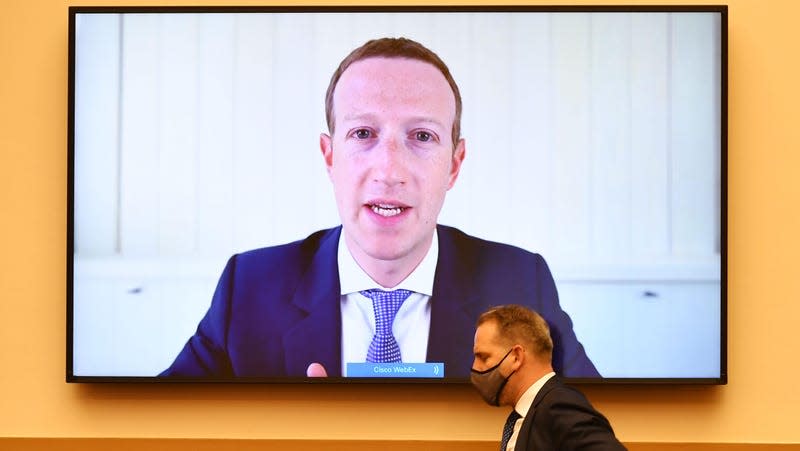Meta Forced to Sell Giphy in UK Antitrust Case

Two and a half years after gulping down Giphy, Facebook’s parent company Meta is being forced to spit the gif-sharing company back up. The United Kingdom’s Competition and Markets Authority (CMA), has ruled that that Meta’s purchase of Giphy was anticompetitive—reaffirming an earlier decision from June.
The British regulator determined that the acquisition “could allow Meta to limit other social media platforms’ access to GIFs, making those sites less attractive to users and less competitive,” wrote the CMA in a press statement announcing the order. The agency also “found the deal has removed Giphy as a potential challenger in the UK display advertising market, preventing UK businesses from benefiting from innovation in this market.”
Read more
Asus Made a Kitchen Gadget That Tells You When Fruits and Veggies Are Actually Clean
I Drank Dying Glacier Water, and All I Got Was a Deeper Feeling of Dread
When Meta bought Giphy in May 2020, the company was already facing regulatory probes in Washington D.C. for alleged anticompetitive behavior. At the time, multiple Meta platforms (Facebook, Instagram, Messenger, and WhatsApp) all integrated Giphy’s API. And lots of other social media sites did too—from Twitter to Signal and Slack. By snapping up Giphy, Meta not only absorbed the largest gif company out there, but also bought itself a portal into these other, competing social media giants.
Plus, a 2021 report from Bloomberg determined Giphy artificially deflated its own value (to around $400 million) just before the buyout, in order to minimize regulator scrutiny. Unfortunately for formerly Facebook though, it didn’t work.
The CMA first began its investigation into the Meta/Giphy merge less than a month after it was announced. The regulator has required Meta and Giphy to be held separately in the UK since June 2020, pending a ruling. In November 2021, the agency first found the merger in violation of British competition laws. But Meta appealed, leading to a remittal inquiry—which also didn’t go Meta’s way.
The company has thus seemingly exhausted it’s options to try and weasel out of CMA enforcement, and so has agreed to part with Giphy. In response to the UK ruling, a Meta spokesperson told Gizmodo in an email that, “We are disappointed by the CMA’s decision but accept today’s ruling as the final word on the matter. We will work closely with the CMA on divesting GIPHY.”
However, Meta’s quest to grow ever-larger and more dominant in the internet landscape and beyond is far from over. “We will continue to evaluate opportunities - including through acquisition - to bring innovation and choice to more people in the UK and around the world,” the company further said in its statement.

